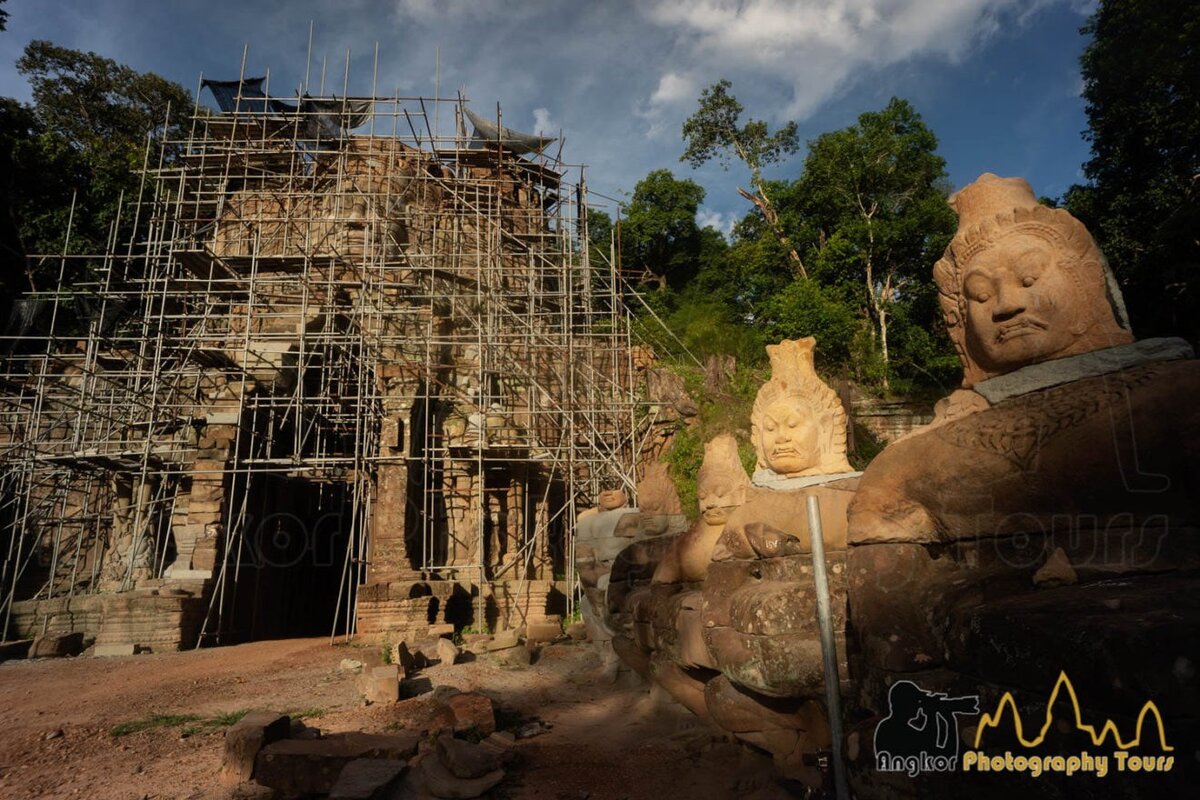“Scholars have long argued against this interpretation, and archaeological evidence is shedding even more light on the decline of the Angkorian civilization. The process was much longer and more complex than previously imagined”, notes the author in preamble: “Angkor’s collapse may be better described as a transformation.”
Instead of the cataclysmic explanations of the decline — either from armed invasionsor from some dramatic climate change –, this essay reflects a compendium of causes leading to the “abandonment” (to use a term more and more used by modern researchers) of Angkor as a center of power. Amongst them:
- “Paleoclimate research has highlighted region-wide environmental changes that were taking place at the time, too. A series of decades-long droughts, interspersed with heavy monsoons, disrupted Angkor’s water management network meant to capture and disburse water.”
- “At the same time, maritime trade with China was increasing. The relocation of the capital further south, near the modern capital of Phnom Penh, allowed rulers to take advantage of these economic opportunities.”
- “Constructing stone temples and writing inscriptions are elite activities – these last instances at the Angkorian capital happened during the region-wide adoption of Theravada Buddhism that replaced Hinduism. This religious shift disrupted the pre-existing Hindu-based power structures. Emphasis moved from state-sponsored stone temples and royal bureaucracy to community-based Buddhist pagodas, built from wood (…) One study of the moats around the walled urban precinct of Angkor Thom suggest the city’s elite were already departing by the 14th century, almost 100 years before the supposed sack of the capital by Ayutthaya.”
Such a “disaffection of the elites” could also explain the growing rivalries between political and religious factions, the disruption of dynastic succession, and the return to the dissemination of power among regional rulers that had prevailed before the “Golden Age“of Angkor.
Tags:
power,
decline and fall,
climate,
Khmer Empire,
historiography,
Khmer dynasties,
Khmer elites,
collapse,
archaeology


